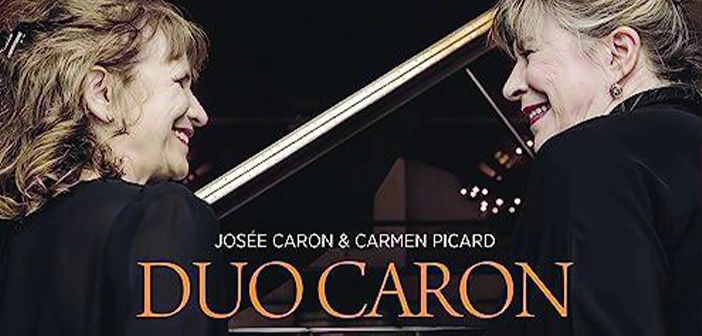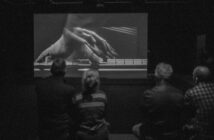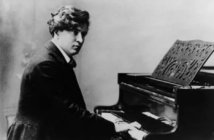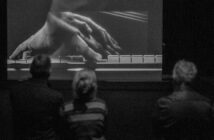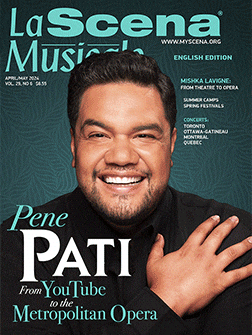
This page is also available in / Cette page est également disponible en:
![]() Francais (French)
Francais (French)
-
Espace 215
Duo Caron: Suites modernes pour quatre mains
Duo Caron: Josée Caron and Carmen Picard, piano
Espace 21, 2023

However, the quality of the Steinway piano used for the recording is not up to the pianists’ standards. The piano’s squeaky, metallic timbre in the high registers is the album’s only regrettable feature. Perhaps it would have been better to balance takes from the various microphones to achieve a fuller, richer sound.
In Josée Caron’s transcription of the first movement of Gustav Holst’s The Planets, Op. 32, the powerful playing of both performers depicts the menacing character of Mars, Bringer of War. That said, this movement requires the colours of an orchestra and loses its fullness at the piano. The transcription of Jupiter, Bringer of Joy, lends itself better to pianistic sonorities. The technical passages are easily mastered by the duo.
Beautiful sonority and impeccable ensemble playing are on display in Claude Debussy’s Petite suite. In the first movement, En bateau, the duo emphasizes rhythm and gaiety rather than tenderness or colour. The agility of the playing feels appropriate in the second movement, Cortège, where the perfect fusion of the performers makes for assured playing. The last two movements, Menuet-Moderato and Ballet, Allegro giusto, are played with clarity, elegance, limpidity and rhythmic playfulness, despite the piano’s thin, subdued timbre.
Béla Bartók’s excellent Suite 4b, BB 122 demonstrates the exceptional qualities of the Duo Caron. Serenata: Comodo is reminiscent of Prokofiev’s Romeo and Juliet: imaginative, with overtones of Slavic melodies and dances. The melodic inventiveness, surprising and elegant, complements the other pieces on the album. The Allegro diabolico is written in Bartók’s “barbaro” style: inventive, interesting music, rendered by flexible, measured and experienced playing in the fugue passages. The playful, proud, dancing character of the Balkans is conveyed with virtuosity.
Scena della Puszta: Andante presents a beautiful, haunting modal theme, typical of Bartók’s slow melodies. Amid a magnificent scene of sonic effervescence, Bartók paints a rich, fragrant picture with arpeggios running the length and breadth of the piano. Remarkable playing: one could have guessed Bartók himself, improvising on the piano. Concluding with the movement Per finire: Comodo, the duo’s playing is powerful and expressively mature. Good tempo, pleasant tone and clean finish. The parallel scales are executed with aplomb. A very fine album.
Playlist
This page is also available in / Cette page est également disponible en:
![]() Francais (French)
Francais (French)

